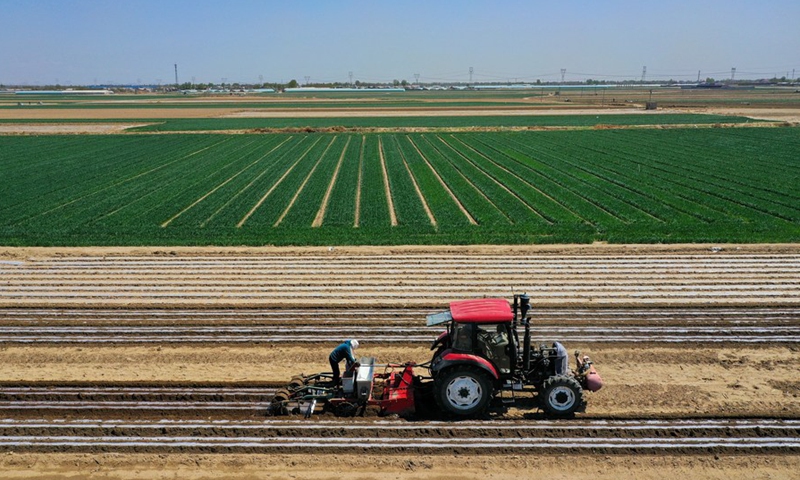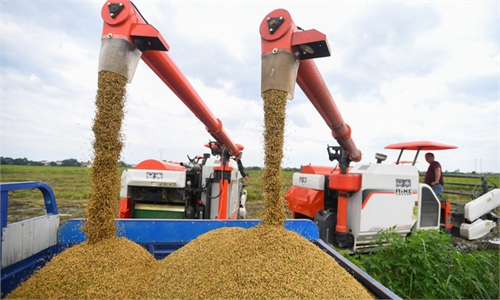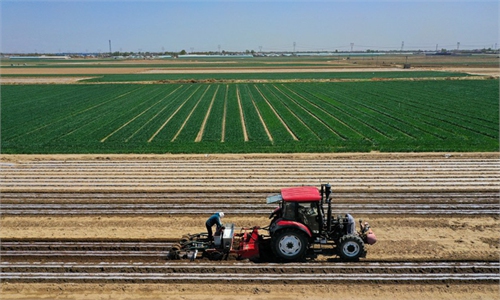
Aerial photo shows farmers sowing at a peanut farm in Yangjiatuo Village of Luanzhou City in North China's Hebei Province, April 18, 2021. Photo: Xinhua
Results of China's third national land survey released on Thursday show that China reached the goal of arable land conservation of 120 million hectares.
As of December 31, 2019, the total area of arable land reached 1.91 billion mu (127.86 million hectares), reaching the goal of cultivated land conservation of 120 million hectares set in the state plan.
However, the amount of cultivated land decreased by 7.53 million hectares over the 10 years since China's second national land survey, which was conducted between 2007 and 2009.
Under the circumstance that the compensation of farmland occupied by non-agricultural construction is strictly implemented, the main reason for the decrease of farmland is agricultural structural adjustment and afforestation.
The survey result shows positive effects have been made in ecological improvement with the total area of woodlands, grasslands, wetlands, rivers and lakes with strong ecological functions being increased by a total of 17.33 million hectares over a period of 10 years.
The third survey deployed and launched by the State Council in September of 2018 was a major survey on China's national conditions and strengths, which adopted advanced technologies to reduce possible human interferences and to improve data quality.
According to the communiqué of the survey result, advanced technologies such as remote sensing, satellite positioning, mobile internet, cloud computing and drones were utilized in the survey to minimize human intervention.
Meanwhile, national-level trainings were given to over 6,800 people and provincial-level trainings were given to about 110,000 people to improve frontline investigators' capability.
Global Times


